Search Posts
Recent Posts
- Outdoors in RI: Help keep recreation areas clean. Invasive Milfoil, trash. 2A update – Jeff Gross July 26, 2024
- Real Estate in RI: Highest-ever sale in Queen’s Grant, EG $1.25M, by Residential Properties July 26, 2024
- Homeless in RI: Gov. Newsom issues Executive Order. Remove California’s encampments. July 26, 2024
- Let the games begin. XXXIII Summer Olympics – John Cardullo July 26, 2024
- GriefSPEAK: What would you do? – Mari Dias Nardolillo July 26, 2024
Categories
Subscribe!
Thanks for subscribing! Please check your email for further instructions.
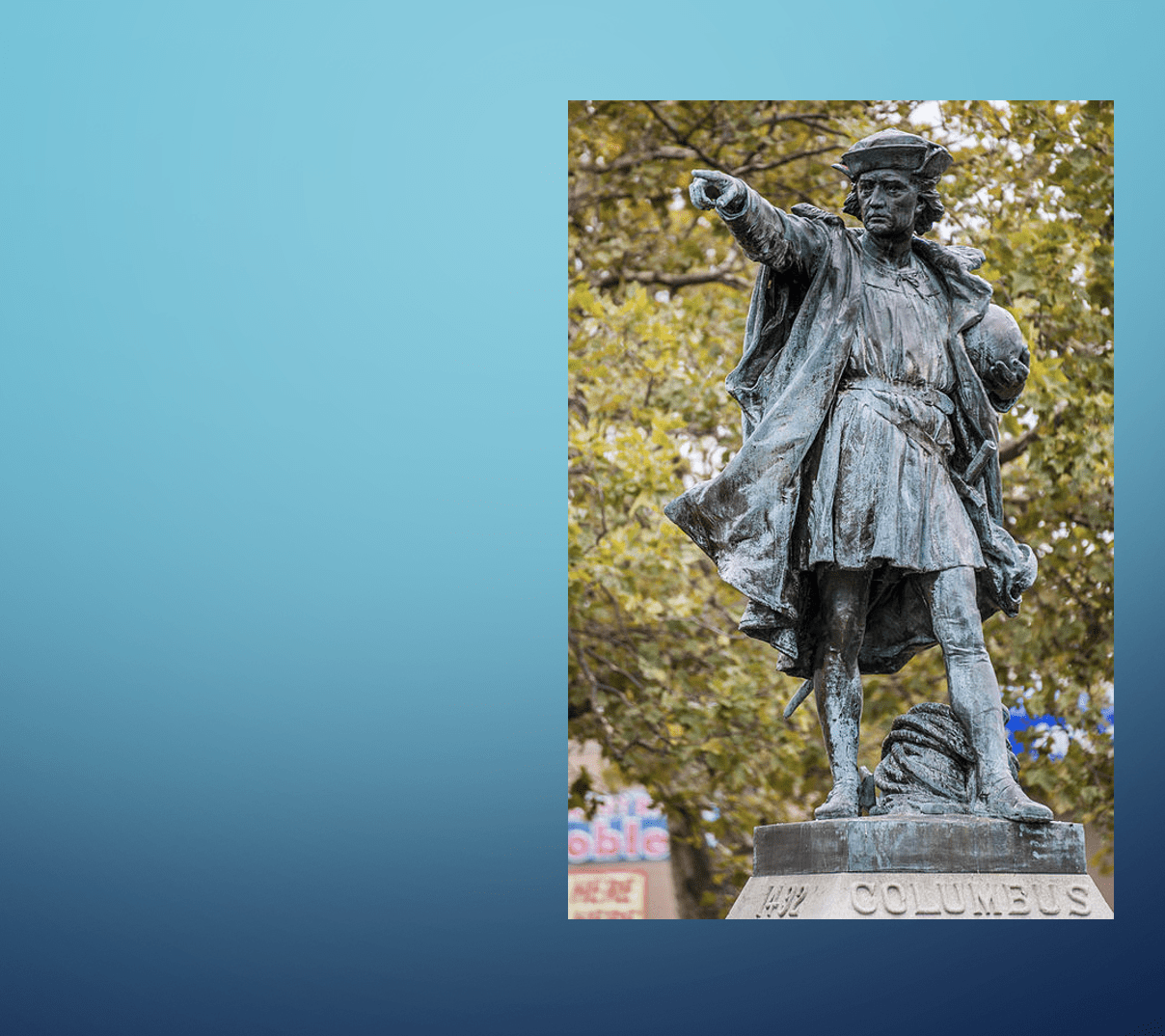
Italian American War Veterans of RI (ITAMRI) to Mayor Elorza: Return Columbus statue immediately
Today, John A. Cianci, RI Department Commander of the Italian American War Veterans of RI (ITAMRI) issued a call to have the Providence Christopher Columbus statue, put into storage after repeated vandalism, immediately returned after a legal challenge to a similar action was ruled in favor of a “Friends of…” group seeking an overturn of the proposed action.
The Philadelphia statue remains boxed to this day while a decision was being played out in the courts. Now that the decision has come down, the statue is expected to be restored.
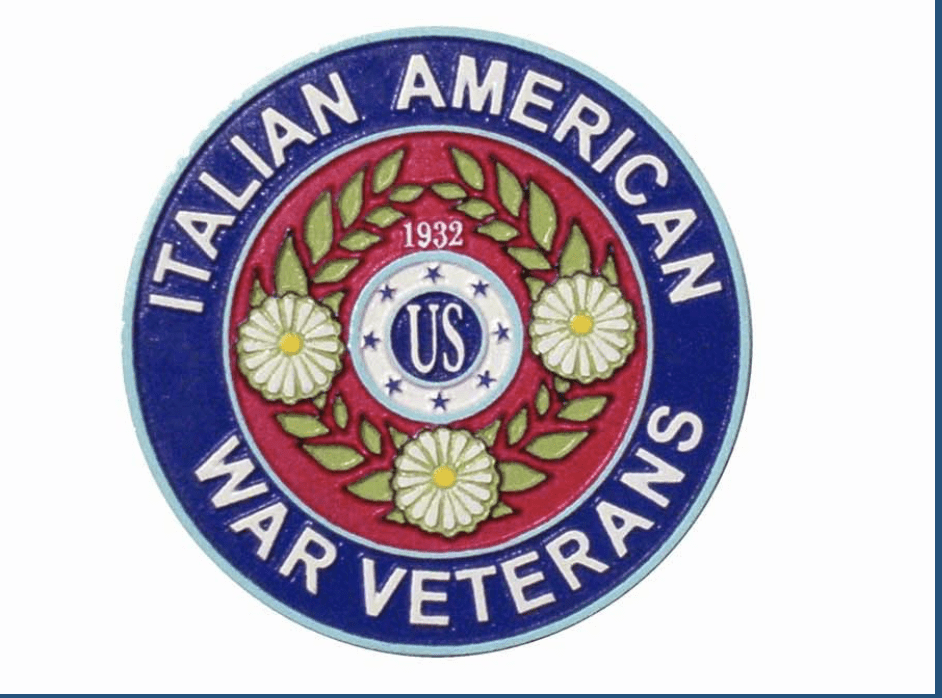
Cianci released a brief statement following the Philadelphia decision:
“Italian American War Veterans, Inc of Rhode Island will send this decision to the Mayor of Providence seeking return of the Columbus Day monument immediately. If the monument is NOT returned, we are prepared to seek legal action.”
_____
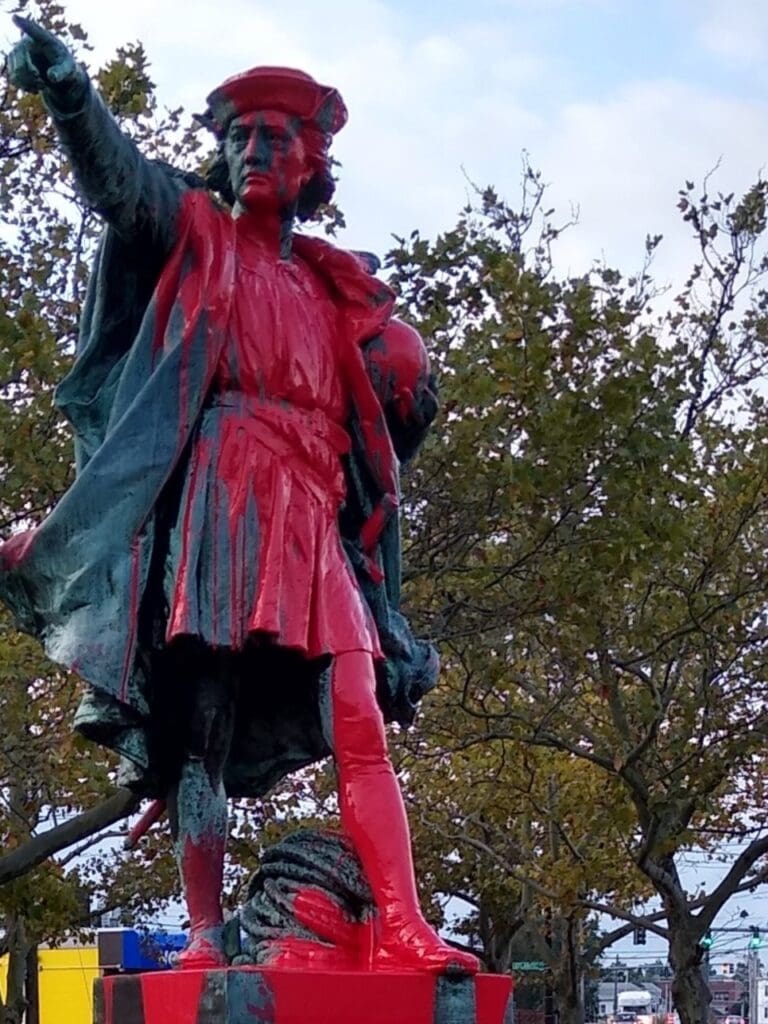
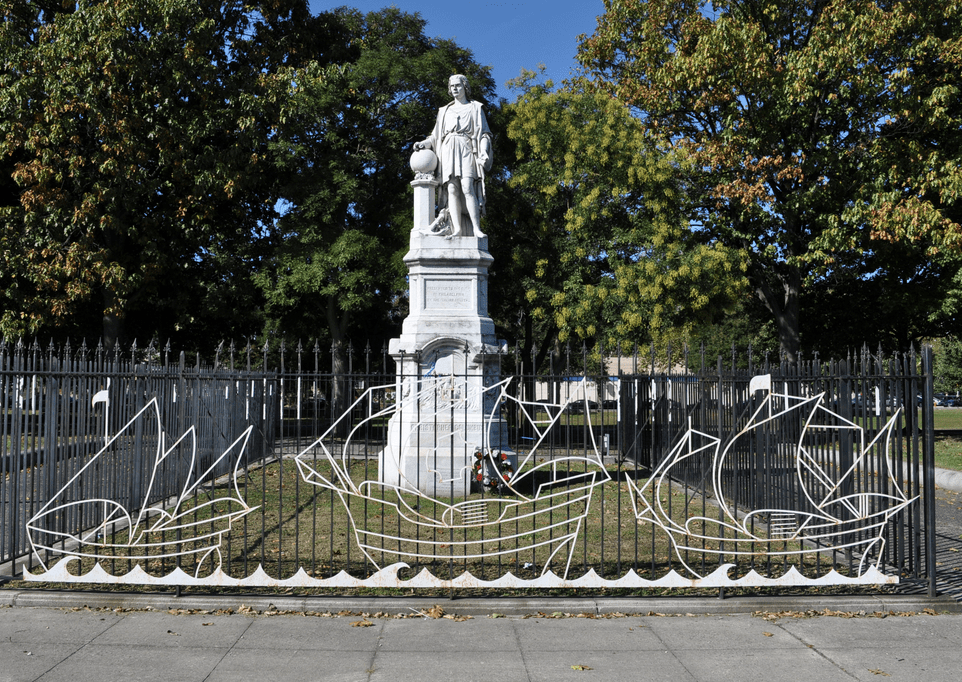
The Philadelphia Columbus statue:
A statue of Christopher Columbus installed in Marconi Plaza, in Philadelphia, Pennsylvania sits surrounded by a railing decorating with wire art of the Nina, Pinta and Santa Maria. The statue was erected in 1876 and was done by sculptor, Emanuele Caroni.
On August 12, 2020, the Philadelphia Art Commission issued an order to remove the statue and put it in storage until something could be decided, permanently. This followed an endorsement of a city proposal by the Philadelphia Historical Commission, to remove the statue, citing public safety and susceptibility of damage to the statue as a result of the protests that developed after the killing of George Floyd.
A judge later halted the order, while the matter went to court. At that time the city decided to contain the statue in a wooden covering, again, until legal battles continued.
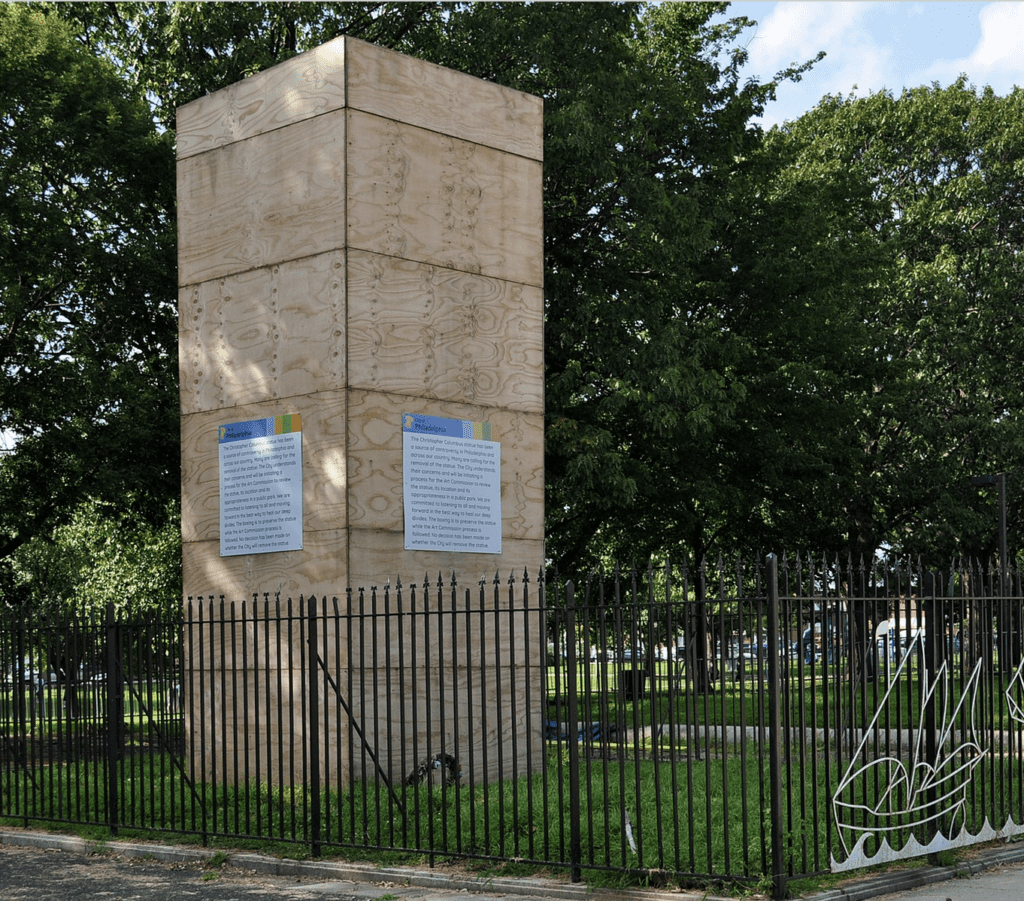
This week, the Philadelphia County Court of Common Pleas issued a decision on appeal by the Friends of Marconi Plaza – they rules that the decision for removing the statue was without legal merit. al battle continues in the courts. Citing preservation of the statue pending a final decision, the City of Philadelphia had it boxed. On August 17, 2021 a judge from Philadelphia Common Pleas Court ruled the decision for removing the statue to be without legal merit.
RI Department CommanderJohn A Cianci
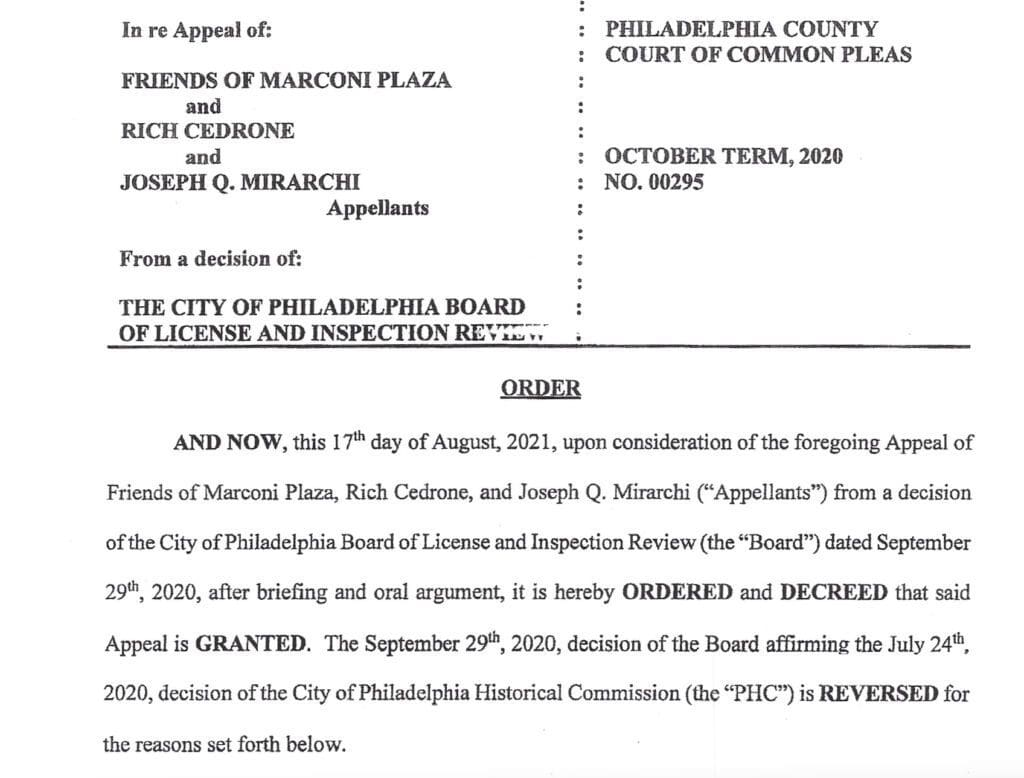
In Providence, the statue was defaced with red paint several times, then In June 2020, on the order of Providence Mayor Elorza, the Columbus statue was removed from Columbus Square. To date the city refuses to say where the statue is stored, nor what its long term is for its fate.
The bronze cast sat upon a slab of Westerly granite. The statue was cast by Gorham Manufacturing.
This is a developing story.

Let Not Forget how the Italians were treated——March 14, 1891 New Orleans lynchings
From Wikipedia, the free encyclopedia
Jump to navigationJump to search
March 14, 1891 New Orleans lynchings
1891 New Orleans Italian lynching.jpg
Rioters break into Parish Prison.
History of the United States, Scribner, New York. 1912.
Location New Orleans, Louisiana, U.S.
Date March 14, 1891
Target Italian American suspects of the murder of David Hennessy
Deaths 11
Perpetrators Lynching squad led by William Parkerson, Walter Denegre, James D. Houston, and John C. Wickliffe. Others in the squad included John M. Parker and Walter C. Flower.
The March 14, 1891, New Orleans lynchings were the murders of 11 Italian Americans in New Orleans, Louisiana, by a mob for their alleged role in the murder of city police chief David Hennessy after some of them had been acquitted at trial. It was one of the largest single mass lynchings in American history.[1][2][note 1]
The lynching took place the day after the trial of nine of the nineteen men indicted in Hennessy’s murder. Six of these defendants were acquitted, and a mistrial was declared for the remaining three because the jury failed to agree on their verdicts. There was widespread suspicion in the city that an Italian network of criminals was responsible for the killing of the police chief, in a period of anti-Italian sentiment and rising crime. Believing the jury had been bribed, a mob broke into the jail where the men were being held and killed eleven of the prisoners, most by shooting. The mob outside the jail numbered in the thousands and included some of the city’s most prominent citizens. American press coverage of the event was largely congratulatory, and those responsible for the lynching were never charged.
The incident had serious national repercussions. The Italian consul Pasquale Corte in New Orleans registered a protest and left the city in May 1891 at his government’s direction. The New York Times published his lengthy statement charging city politicians with responsibility for the lynching of the Italians.[5] Italy cut off diplomatic relations with the United States, sparking rumors of war. Increased anti-Italian sentiment led to calls for restrictions on immigration. The word “Mafia” entered the American lexicon, and the awareness of the Italian mafioso became established in the popular imagination of Americans.
The lynchings were the subject of the 1999 HBO film Vendetta, starring Christopher Walken. The film is based on a 1977 history book of the same name by Richard Gambino.